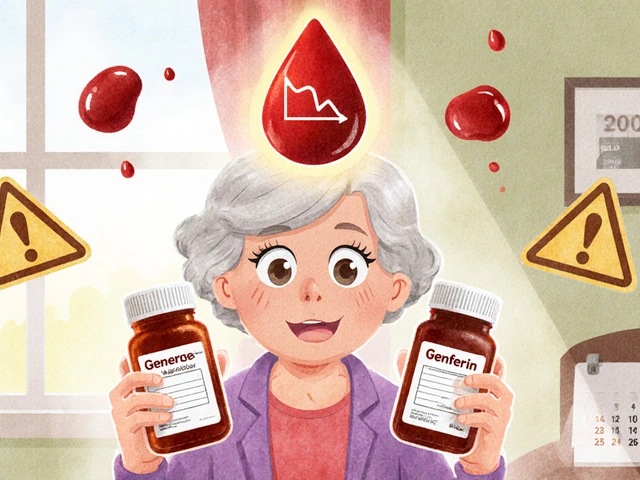IBD Help: Practical Tips for Living with Crohn’s & Colitis
If you have inflammatory bowel disease (IBD) — Crohn’s or ulcerative colitis — you already know it’s more than tummy trouble. Symptoms jump around: pain, diarrhea, tiredness, sometimes weight loss. The good news: simple daily choices can cut flare frequency and make life easier. Below are clear, useful steps you can try now, plus which Blueskydrugs.com articles can help you next.
Diet & flares: what to try and what to skip
Food affects people differently, so keep a short food diary for two weeks to spot patterns. During flares, many people do better on low-residue meals: plain cooked vegetables, peeled fruits, white rice, lean protein, and simple soups. Cut back on raw high-fiber veggies, nuts, seeds, and popcorn until things calm down. Stay hydrated — diarrhea can deplete salt and fluids fast, so sip water and consider electrolyte drinks if needed.
If you’re curious about specifics, read our guide "Best and Worst Foods for Colitis" for practical lists and meal examples. Probiotics can help some people but not everyone; check with your gastroenterologist before starting them. Also, try smaller meals more often rather than big heavy plates — that often reduces cramping and urgency.
Medication, tests, and daily habits that help
Medication choices for IBD range from anti-inflammatory pills (5-ASA) to steroids, immunomodulators, and biologic drugs. Each works differently and comes with trade-offs. Don’t stop or change meds without talking to your doctor — flares can rebound fast. If you’re unsure about side effects or alternatives, bring a list of symptoms to your visit and ask about newer biologic options or targeted therapies.
Routine care matters: regular blood tests, colonoscopies when advised, and vaccination checks (flu, COVID, shingles if eligible) reduce complications. Because IBD and its treatments can affect fertility, pregnancy, and mental health, consider reading our pieces like "How to Choose the Right Fertility Clinic for You" if that’s on your mind.
Small lifestyle wins add up: manage stress with short daily walks, sleep consistently, and build a support circle — whether a friend, online group, or specialist nurse. If symptoms suddenly worsen (high fever, severe belly pain, heavy bleeding, fainting), head to urgent care or the ER — get immediate medical attention.
Want deeper reads from the site? Start with "Best and Worst Foods for Colitis" for diet plans, then check our medication articles for alternatives and safety tips. If you live with immune issues, see "Pet Therapy: A Boost for Immunodeficiency Patients" for ideas on emotional support. Browse the titles under this IBD tag to find what fits your situation and talk it over with your care team.
Managing IBD is a mix of practical daily steps and smart medical care. Keep notes, ask direct questions at clinic visits, and use reliable guides to make small changes that help you feel better.



